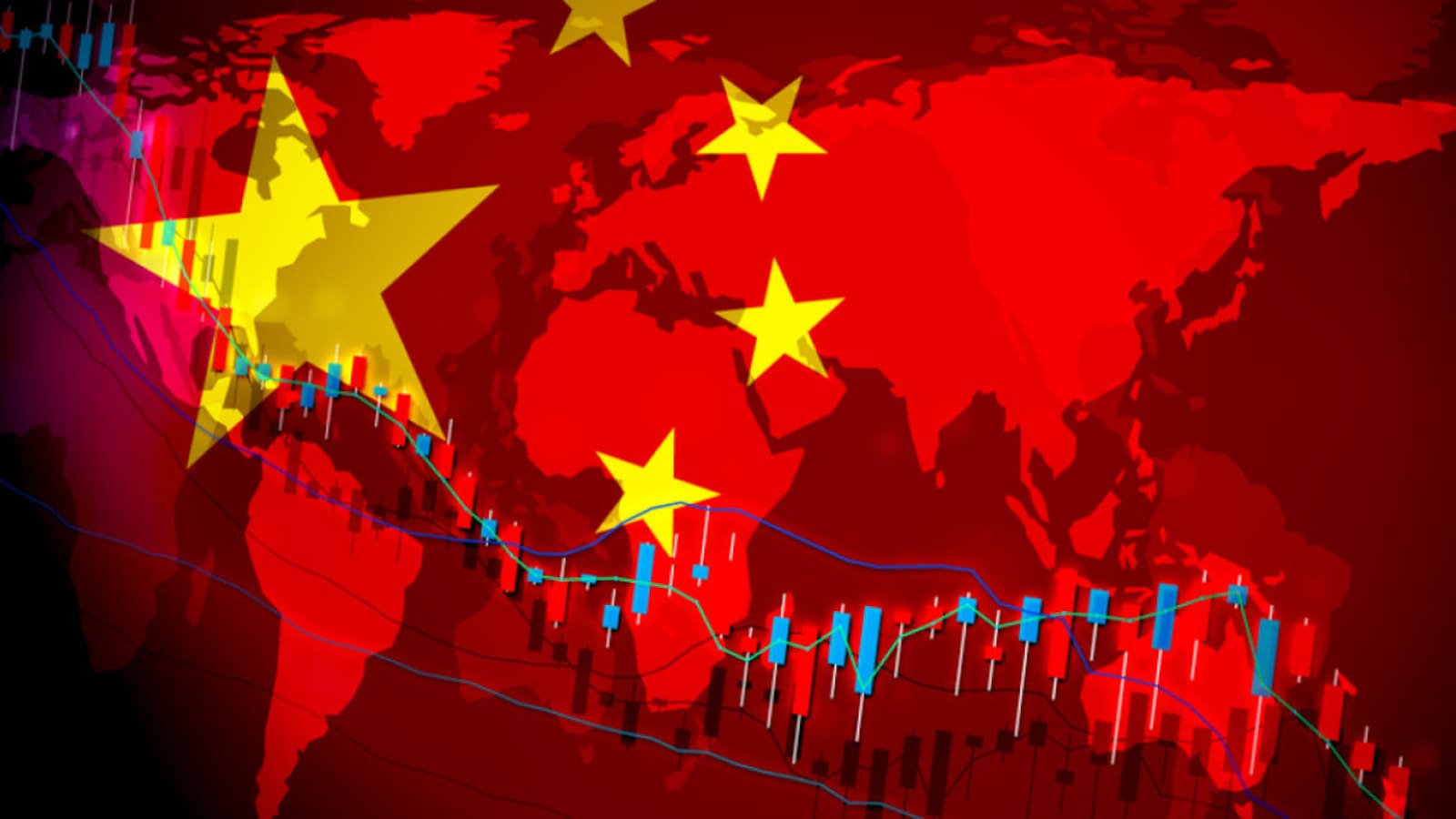China’s Economic Challenges Deepen, Does Xi Jinping Have A Plan?
China's economic landscape is experiencing a deepening crisis as foreign investors hesitate to provide much-needed support. The country faces mounting pressure from both international and domestic fronts, with concerns ranging from alleged human rights violations to decoupling from global supply chains. As economic indicators continue to worsen, including slowing factory production, weak sales growth, and rising unemployment, President Xi Jinping's leadership is being questioned.

China presently finds itself at a critical juncture as its economic challenges deepen. The erosion of investor trust, labour disputes, and declining economic indicators necessitate bold and strategic action, and President Xi Jinping and his administration face the daunting task of implementing comprehensive reforms to restore economic stability, attract and maintain foreign investment, and regain the faith of the Chinese people.
Foreign companies operating in China are facing increasing scrutiny over their practices, leading to public protests and calls for business relocations. The example of Volkswagen’s CEO being targeted by activists (cake thrown) highlights concerns over forced labour allegations in Xinjiang. This incident is symbolic of a broader trend of companies facing pressure to move away from China, thus contributing to the decoupling of the Chinese economy. Investors, once optimistic about China’s growth prospects, however, are now reconsidering their stance, thus further eroding confidence in the nation’s economic future.

Dismal Economic Performance
China’s economic woes are evident in its recent economic data. Industrial output growth, which expanded by 5.6% in April, experienced a decline in May. Sales in the retail sector also fell short of expectations, adversely impacting the overall growth target. Alarming youth unemployment figures, exceeding 20%, further underscore the severity of the situation. This downward trend appears to be more than a temporary slump, raising concerns about the ability to reverse it easily.
Implications for Communist Party Legitimacy And Xi Jinping Himself
The Communist Party of China has long relied on a strong economy to maintain its legitimacy. Economic growth has been seen as an unwritten contract between the party and the people, ensuring stability and support. However, the discontent arising from the lack of growth, coupled with labour disputes and protests, indicates a fracture in this contract. The erosion of economic security among the population poses a significant challenge to the Communist Party’s authority to rule.
Factory Woes Continue, And So Does The Economic Decline
Once hailed as the backbone of the nation’s economy, the Chinese factories are now facing a myriad of problems. A surge in protests, with at least 130 recorded strikes in May, has become a significant concern. The root cause of these protests is primarily low wages and delayed or unpaid salaries. Factory owners, burdened by financial constraints and diminishing new orders, struggle to meet their obligations. Some factory workers are even subjected to forced relocations, adding to their hardships.
Pursuit of Solutions
China’s leader Xi Jinping recognizes the urgent need to address the economic crisis. Stimulus packages, including potential measures such as tax breaks, increased loans for small businesses, and reduced mortgage costs to boost the real estate sector, are being considered. However, scepticism persists among experts, who liken such packages to short-term antibiotics that merely alleviate symptoms. Instead, a more substantial and comprehensive approach is required—a surgical intervention aimed at resolving the underlying structural issues hampering the Chinese economy.

Global Implications, The Ripple Effects of China’s Declining Economy on Supply Chains
China’s economic downturn has far-reaching consequences and may very well extend beyond its borders. As the world’s second-largest economy and a major player in global supply chains, China’s current struggles may have a reverberating effect throughout the international business landscape.
Disruptions in Global Supply Chains Inevitable
China’s position as the “workshop of the world” means that countless industries and countries depend on its manufacturing capabilities. A downturn in the Chinese economy may lead to disruptions in global supply chains, affecting sectors such as electronics, automotive, textiles, and more.
With reduced production capacity, delayed shipments and supply shortages are likely to occur, causing a domino effect that ripples through the interconnected global economy.
Manufacturing Relocations and Shifts By Many Investing Companies
The economic challenges being faced by China are prompting businesses to reevaluate their dependence on the country as a manufacturing hub. The ongoing trend of diversification and regionalization of supply chains, known as “decoupling,” gains momentum as companies seek alternatives to reduce risk and ensure business continuity. Countries in Southeast Asia, such as Vietnam, Thailand, and Malaysia, are among the prime beneficiaries of this shift, as they have become attractive destinations for manufacturing investments.
Impact on Export-Dependent Economies
Numerous countries heavily rely on exports to China to drive their own economic growth. A decline in Chinese demand translates into reduced export opportunities for these nations, potentially leading to slower growth rates, job losses, and decreased government revenues. Countries with significant exposure to China, such as Australia, South Korea, and several countries in Africa, are particularly vulnerable to the impact of China’s economic woes.
Impact on Commodity Markets and Resource-Exporting Countries,
China is one of the major consumers of various raw materials and energy resources; hence a slowdown in China’s economy has global implications for commodity markets. Reduced demand from China can usher downward price pressures for commodities such as oil, iron ore, copper, and agricultural products. This, in turn, may affect resource-exporting countries like Australia, Brazil, and many African nations, straining their economies and challenging their fiscal stability.
Financial Markets and Investor Sentiment,
China’s economic struggles can also disrupt global financial markets and influence investor sentiment. Uncertainty regarding the health of the Chinese economy may lead to increased market volatility, currency fluctuations, and capital outflows leading to investors becoming more cautious, reducing their exposure to Chinese assets and potentially impacting emerging markets and global investment flows.
Geopolitical Implications
China’s economic decline can have significant geopolitical ramifications as well; as the country’s economic prowess wanes, it may affect China’s influence on the international stage and its ability to shape global affairs.
This could prove to be a major thorn in the side of Xi Jinping even as the United States and China’s relations remain strained and have the potential to shift in alliances, trade relationships, and regional power dynamics, impacting global geopolitics in various ways.
The Last Bit, The impact of China’s falling economy extends well beyond its borders. Disruptions in global supply chains, shifts in manufacturing patterns, and the economic consequences faced by export-dependent countries and resource exporters are just a few examples of the intricate interconnectedness of the global economy. As China grapples with its economic challenges, governments and businesses worldwide must navigate the ripple effects, adapt their strategies, and seek alternative paths to ensure resilience and stability in an increasingly uncertain global economic landscape that, at the moment, is staring at recession.
As Xi Jinping continues to navigate this path, the Chinese people, in the meantime, want urgent solutions.




